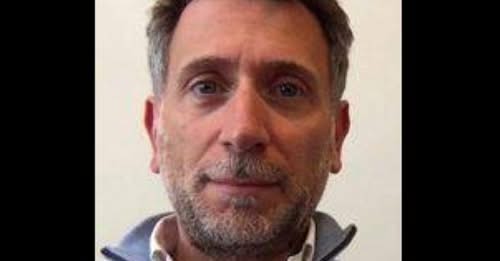Dr. Ballatore’s Remarkable Academic and Professional Journey in the Field of Medicinal Chemistry
Dr. Ballatore’s distinguished academic career spans multiple countries and disciplines, showcasing his dedication to the advancement of medicinal chemistry and pharmaceutical technologies. His journey, beginning in Rome, Italy, and extending through the United Kingdom and the United States, reflects his commitment to both research and education.
Early Academic Foundation: The University of Rome “La Sapienza”
Dr. Ballatore’s academic path began in Rome, Italy, where he pursued his undergraduate studies in chemistry and pharmaceutical technologies at the prestigious University of Rome “La Sapienza”. Between 1990 and 1995, Dr. Ballatore earned his “Laurea”—an Italian degree equivalent to a Master’s in Science—in chemistry, specializing in pharmaceutical technologies. During his time at La Sapienza, Dr. Ballatore developed a deep interest in the intersection of chemistry and healthcare, which would guide the rest of his academic and professional endeavors.
The academic environment at La Sapienza, renowned for its research and faculty in pharmaceutical sciences, provided Dr. Ballatore with a solid foundation in chemical theory, lab work, and problem-solving techniques. This period of intensive study gave him the skills necessary to pursue cutting-edge research in medicinal chemistry.
Advancing His Studies: Ph.D. in Medicinal Chemistry at Cardiff University
After completing his undergraduate studies in Italy, Dr. Ballatore set his sights on furthering his education in the United Kingdom, where he joined Cardiff University to pursue a Ph.D. in Medicinal Chemistry. Under the mentorship of Professor C. McGuigan, a respected leader in the field of medicinal chemistry, Dr. Ballatore honed his research skills and focused on the development of novel compounds aimed at treating serious diseases, particularly cancer.
At Cardiff University, Dr. Ballatore’s work contributed to advancing the understanding of how certain chemical compounds can be designed to improve the efficacy of pharmaceutical drugs. His research involved synthesizing and characterizing new compounds with the potential for therapeutic application. The experience he gained during this period of study equipped him with the specialized knowledge needed to tackle some of the most pressing challenges in the development of new medications.
Postdoctoral Research at the University of Texas MD Anderson Cancer Center
Following the completion of his Ph.D., Dr. Ballatore sought to expand his expertise by conducting postdoctoral research at one of the world’s leading cancer research institutions: the University of Texas MD Anderson Cancer Center in Houston. Under the guidance of Professor D. Farquhar, Dr. Ballatore’s postdoctoral training focused on cancer drug discovery and development.
Working in Professor Farquhar’s laboratory, Dr. Ballatore collaborated on high-impact research aimed at identifying and optimizing new compounds for the treatment of cancer. His work at MD Anderson exposed him to the complexities of translating laboratory research into potential clinical therapies. He contributed to projects that explored the molecular mechanisms of cancer cells and sought innovative solutions to improve the effectiveness of existing cancer treatments.
At MD Anderson, Dr. Ballatore had the opportunity to work alongside some of the brightest minds in oncology, gaining valuable insight into the intricacies of cancer research. His work was essential to the progress of various ongoing projects and laid the groundwork for future breakthroughs in medicinal chemistry.
Dr. Ballatore’s Legacy and Impact
Throughout his academic and professional career, Dr. Ballatore has demonstrated a deep commitment to advancing the field of medicinal chemistry. His research has not only contributed to a better understanding of pharmaceutical technologies but has also helped shape the development of new therapies aimed at improving human health.
Dr. Ballatore’s academic journey—from the University of Rome “La Sapienza” to Cardiff University, and then to MD Anderson Cancer Center—reflects his passion for science and his dedication to using chemistry to tackle the most urgent healthcare challenges. His career serves as an inspiration to future generations of scientists, particularly those interested in the intersection of chemistry, pharmacology, and medicine.
As Dr. Ballatore continues to contribute to the field of medicinal chemistry, his past work remains a testament to the importance of rigorous academic training and collaborative research in addressing the complex issues faced by the healthcare industry today. His dedication to improving global health through chemistry will leave a lasting impact for years to come.
